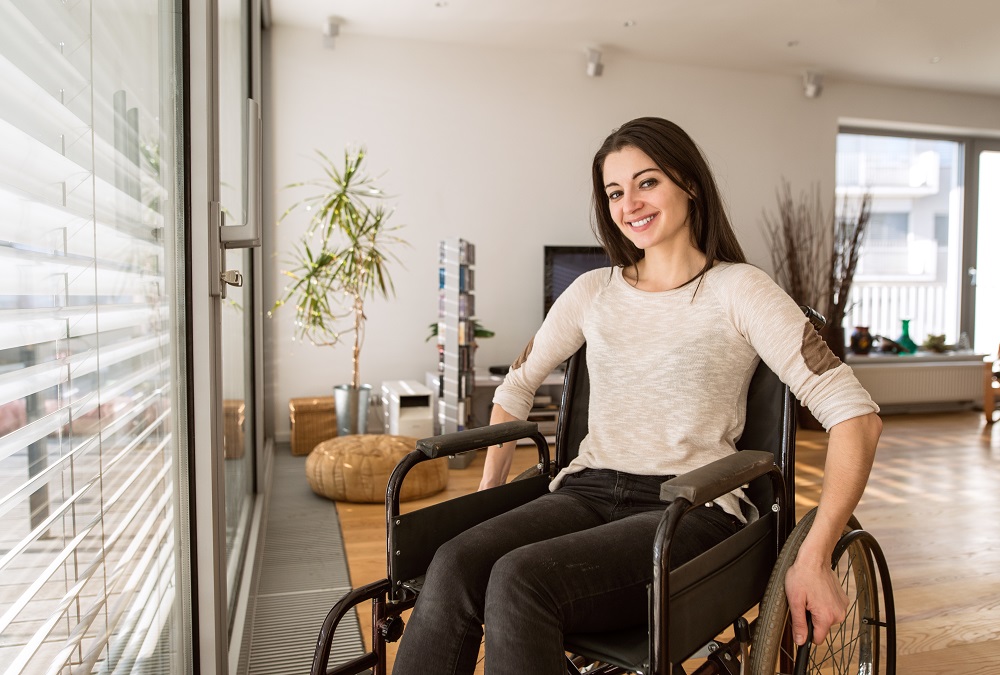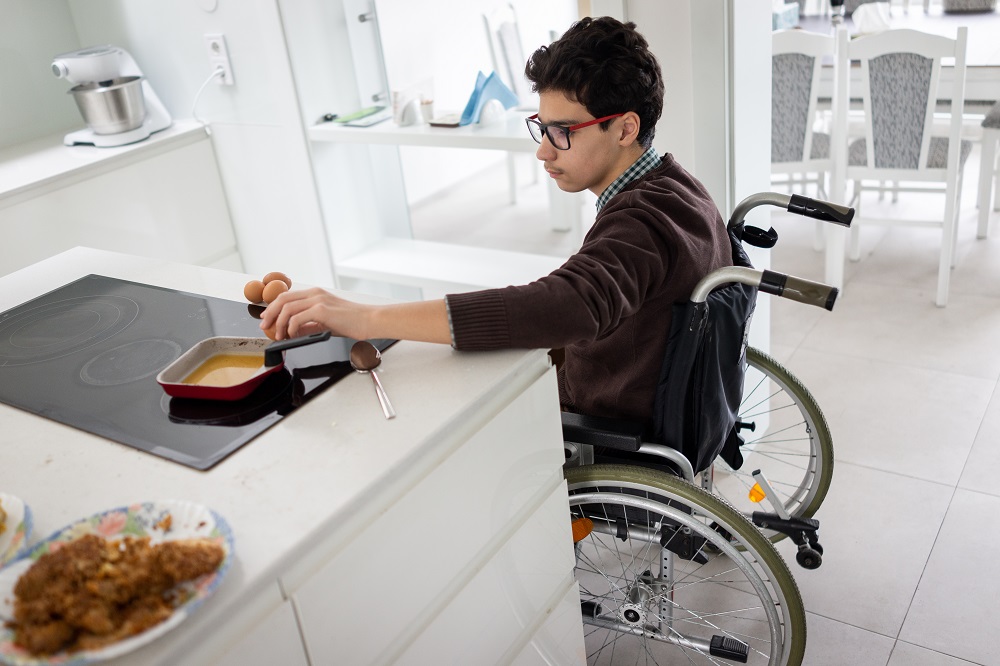Independent Living Options For People With Disability

Every person, including those with disability, desires the freedom to live as they see fit. This may include having a comfortable and private space to live independently.
To narrow the gap between shared accommodation and unsupported living, NDIS independent living options empower people with disability to live the way they want to, whilst receiving the right amount of professional support that they need.
Independent Living Options, or ILO, opens up a world of possibilities for those who require a little extra support to live independently.
To gain a deeper understanding about ILO, we will discuss frequently asked questions regarding independent living and how they might help the individual and their carers.
What is ILO?
Independent Living Options is a set of services that help people with disability decide where and how to live in the most independent way possible. You can live with anyone you like, including your partner, family, friends, or a host family.
It is important to note that the NDIS will not source or fund your accommodation if you choose to go the Independent Living Option route. However, you can gain access to NDIS support services to attend your home to better support you with everyday tasks and stay on track with your NDIS goals.
ILO support workers will help you arrange the necessary support by considering your choices, strengths, and support needs, including community and informal supports. Furthermore, it functions alongside other funded supports and services. ILO is always a individualised approach which is tailored to your needs.
St Jude’s ILO allow for a person to live with their partner, friends, pets or a host family if they would like to. This allows for greater flexibility, and allows a person to exercise more control over who they live with and how they would like to live.
Who is eligible to receive ILO support?
ILO is appropriate for people requiring professional or informal assistance for at least 6 hours daily. In other words, it is ideal for those who need occasional support, rather than full-support.
Additionally, you must be at least 18 years old and ready to research your future home independently.
How can ILO be beneficial?

Being able to live independently in accommodation of your choice is highly beneficial in boosting self-esteem, confidence, and quality of life. Being able to choose your own accommodation and receive support tailored to your specific needs, allows for a greater sense of independence.
Living independently enables you to do the following:
- Cook meals for yourself and your housemates
- Develop better relationships with others, engage in your surrounding community
- Cleaning and garden maintenance
- Setting your own routine and schedule
What type of support can be utilised alongside independent living?
In a nutshell, independent living options can include::
- Living in one’s own home or apartment
- Participating in shared or host living arrangements
- Receiving in-home support services such as personal care, cooking, cleaning and even emotional support
- Developing social skills and participate in recreational or community activities
- Having access to transportation and other community resources.
Is independent living option a temporary or permanent housing situation?

Support services can be used temporarily or permanently, depending on the individual’s needs.
However, supported independent living is meant to be a short-term housing solution for people with disability, as it provides them with the services and support they need to live independently.
Supported Independent Living (SIL) versus Independent Living Options (ILO)?
Supported independent living is appropriate for people who require higher levels of assistance, including 24-hour care. It primarily refers to shared living situations and often entails paid personal support.
ILO, on the other hand, is appropriate for people who prefer periodic extra help rather than round-the-clock care.
Is it possible for someone in a supported living option to pursue ILO?
Assistance adjustments are possible, including increasing, decreasing, or switching priorities. The National Disability Insurance Scheme (NDIS) is aware that the conditions under which you require disability support may evolve over time. Consequently, they will conduct a plan review and develop a new approach if significant changes are necessary.
Ultimately, the goal of someone living in supported independent living is to transition into other living options eventually
Is it possible to access SIL and ILO at the same time?
The simultaneous funding of these options is not permitted. The participant can only select one, and it is based on the eligibility and individual needs. However, you may receive an ILO package if you live in Specialist Disability Accommodation.
Specialist Disability Accommodation (SDA) refers to housing specifically designed (or an existing residence modified) for individuals with high-intensity needs. Depending on who it is created for, it might have specific additions designed for accessibility. This may include wide doorways, a hoist in the bedroom or bathroom, grab bars, and other special features.
How should an NDIS participant go about obtaining ILO?
Obtaining an ILO support package consists of two steps:
Exploration and Designing
To begin, you must determine which supports are appropriate for you and the steps necessary to put those supports in place. Finding suitable housing and connecting you to other funded, community, or mainstream services may be part of this.
Implementation
The next step is implementing those supports using the funds allotted in your NDIS plan. It may include formal and informal support, such as help from family, friends, or the community.
An ILO package also includes resource monitoring and redesign to ensure you receive the required assistance. But to obtain NDIS funding for this phase, a quote from ILO providers is necessary to check if the allocated funds are used for their stated purpose.
You could carry out these steps with or without the assistance of a service provider. ILO providers, on the other hand, are critical in assisting you in establishing your ILO package. They can assist in outlining the roles and responsibilities of the primary, supplementary, formal, and informal supports, which should be documented in agreements that you are comfortable with.
St Jude’s — supporting you to pursue independence
St. Jude’s is a reputable ILO provider with a well-thought-out flexible service model that supports independent and shared living options. Our disability accommodation options are professionally managed with your safety, privacy, and comfort in mind, allowing you to relax and enjoy your independence worry-free.
Furthermore, you also get access to all St. Jude’s Disability Services, including Community Participation, Allied Health and Therapy Services and Support Coordination.
All of our support staff at St Jude’s have extensive training in medication and are competent to deliver insulin if required. Additionally, they are skilled in Positive Behaviour Support and incident management. Complex diebetes management and wound care can also be delivered if the client requires it as part of their care plan.
If you have any other questions about ILO, your eligibility, and how it can benefit you, please don’t hesitate to contact us.
|
|


